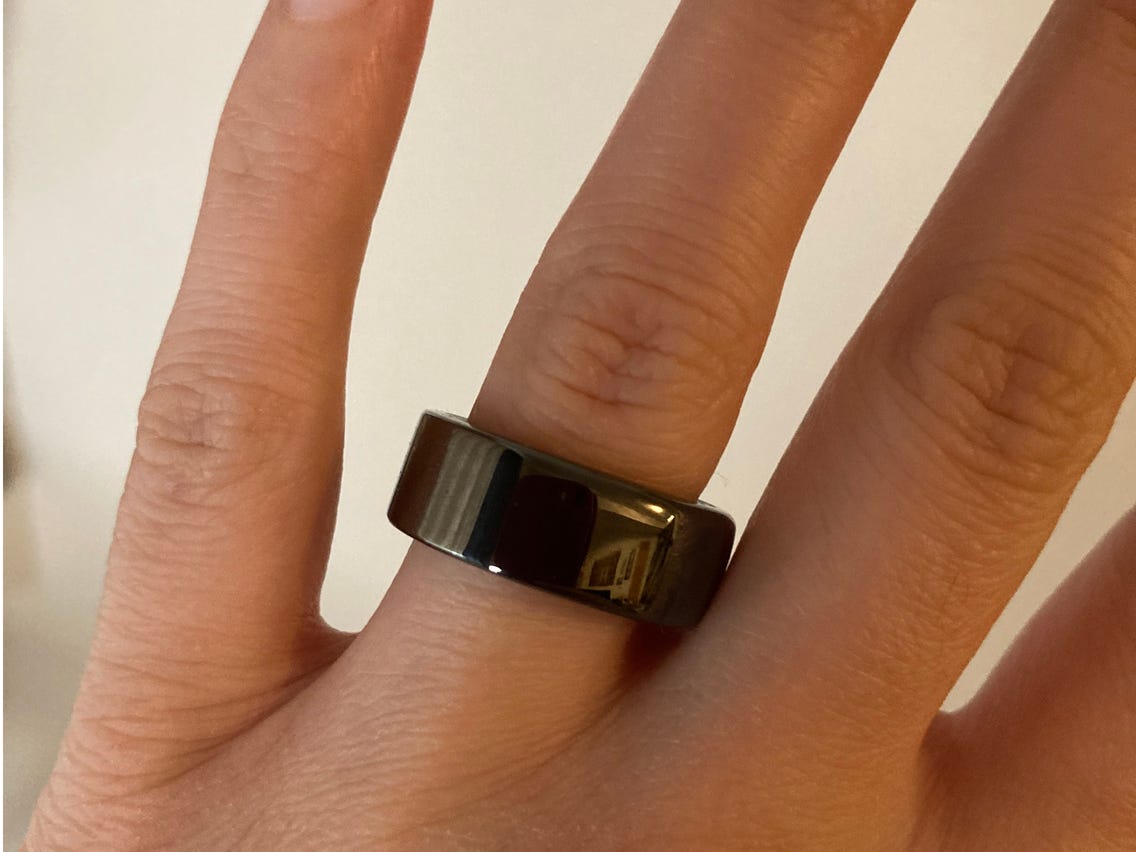New study aims to use health data from a smart ring to identify coronavirus symptoms

A new study will evaluate a smart ring that takes people’s temperatures in an attempt to identify people who have the new coronavirus early, +
More than 2,000 emergency medical workers at the University of California, San Francisco Medical Center and the Zuckerberg San Francisco General Hospital will wear Oura Rings for the study. The rings will be given to emergency medical workers who come into contact with patients who may have COVID-19. Workers who qualify for the study will be asked to wear an Oura Ring for three months, complete daily surveys to report if they are experiencing any COVID-19 symptoms, and share health data collected by the Oura Ring app with Oura, according to UCSF.
Oura Rings, which are marketed as sleep trackers, monitor a wearer’s heart rate, respiratory rate, and changes in body temperature. The devices haven’t been proven to detect COVID-19, but the data they collect might eventually be used to help predict the illness.
The researchers hope to develop an algorithm based on the Oura Ring data that could detect COVID-19 early, says UCSF. It’s not the only device that could help: health company Kinsa uses data from its smart thermometers to track the spread of the flu across the US, and there are signs that its thermometers may be able to pick up on areas where there are outbreaks of COVID-19 before confirmed cases are reported.

With the backdrop of COVID-19, Oura is sponsoring research at University of California, San Francisco (UCSF) to study whether physiological data collected by the Oura ring, combined with responses to daily symptom surveys, can predict illness symptoms. The study aims to (1/3)

build an algorithm to help UCSF identify patterns of onset, progression, and recovery, for COVID-19. This study is open to all Oura ring users and is opt-in only. You can join the UCSF TemPredict study through the invite available in your Oura app or using the link below. (2/3)437:57 AM – Mar 23, 2020Twitter Ads info and privacy16 people are talking about this
Anyone who owns an Oura Ring can opt in to participate in the study. Those who qualify will be asked to take daily symptom surveys and share their health data collected by the Oura Ring app, according to an Oura blog post. There are more than 150,000 Oura Ring users worldwide, Oura tells The Verge, so this could significantly increase the amount of data available to researchers. If you want to participate, you can apply here.

